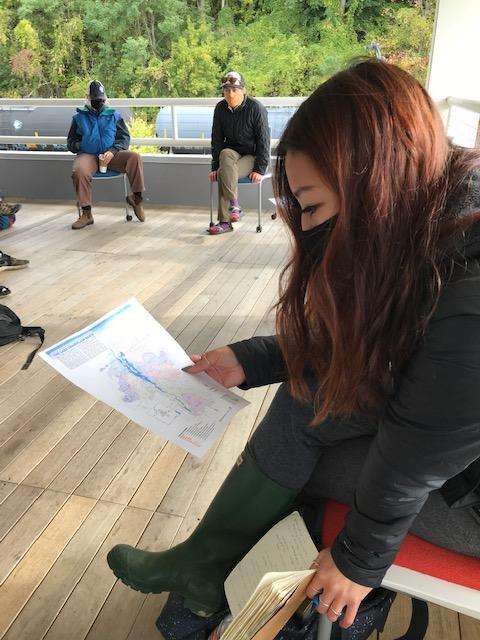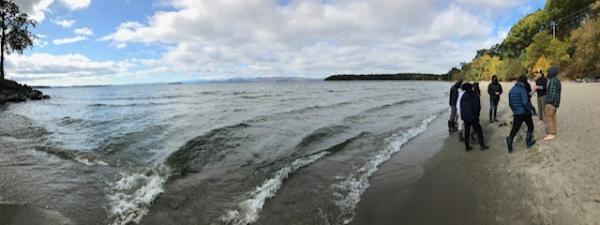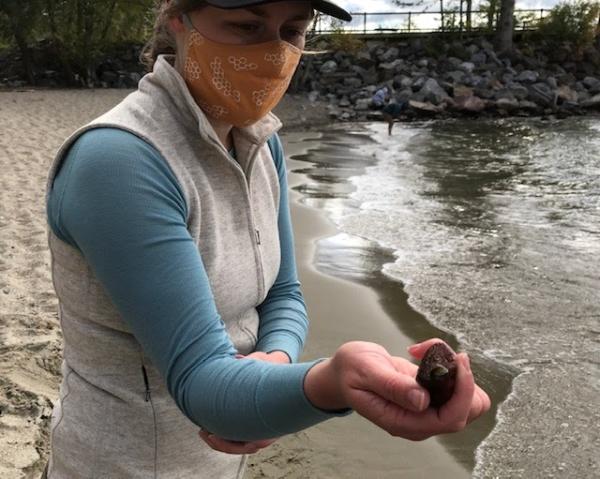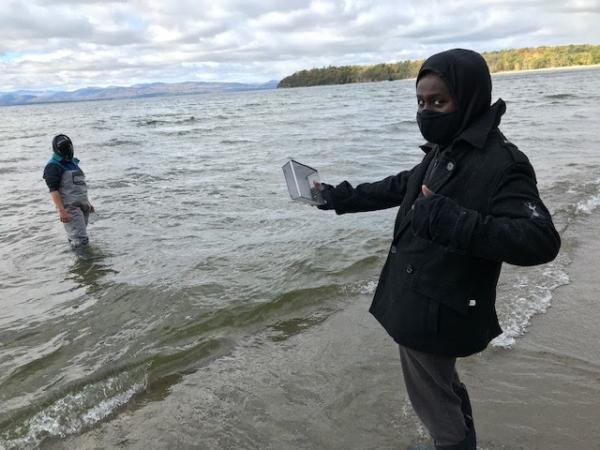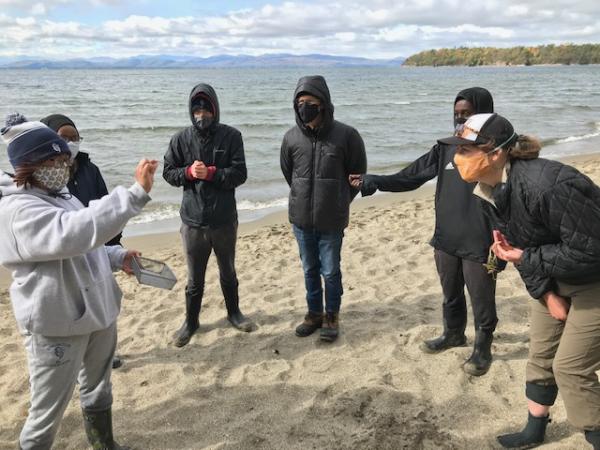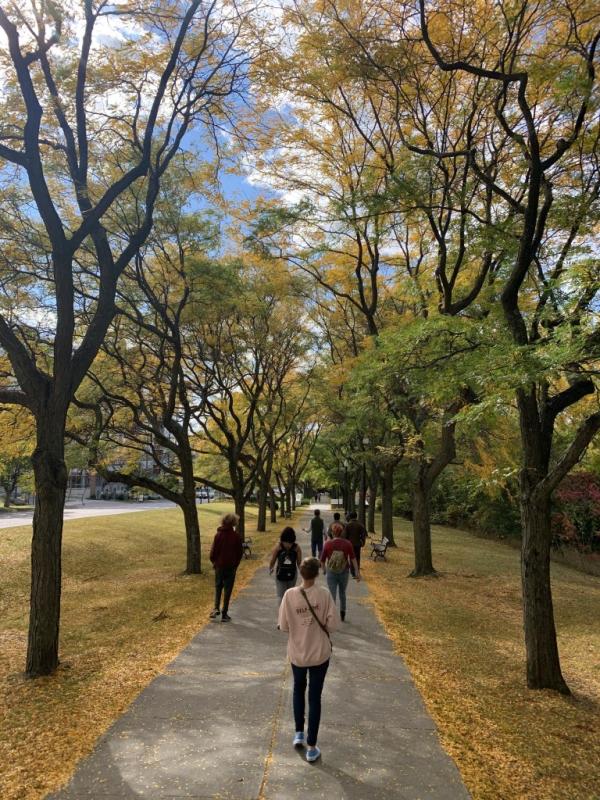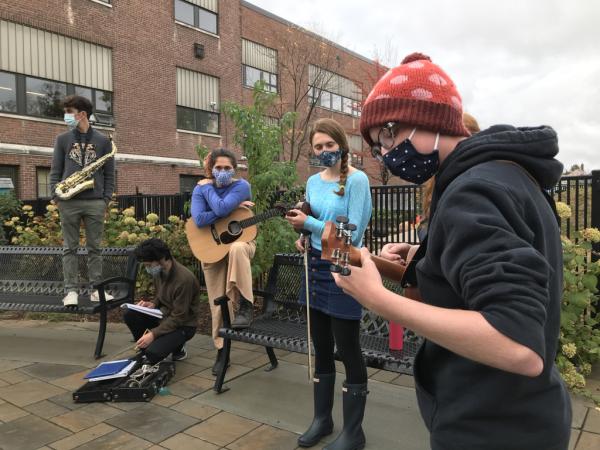Charting the Future: Burlington City & Lake Semester
The Burlington City & Lake Semester (BCL) is an immersive semester program for Burlington High School students. Using the city as our classroom, students explore the people, places, problems and possibilities of their community, including themes of social justice and sustainability. We work with many community partners on our program and curriculum, including Shelburne Farms and its faculty (Jen Cirillo shared the lesson on the United Nations Sustainable Development Goals showcased in this blog). Project-based learning is at the center of what we do: amplifying student voice as they choose topics and engage in authentic, real-world learning by consulting and collaborating with local adult professionals. BCL5 wrapped up last week; one highlight was that we were able to meet in person with students every day outside, while other high schoolers were learning online. We are now embarking on a mini, part-time version of BCL, Burlington Experience, and Shelburne Farms educator Courney Mulcahey is joining our faculty. Check out our BCL Blog and stay tuned for more blog posts from BE1.
— Signe Daly, Faculty of Burlington City and Lake Semester
This blog was originally published by Burlington City and Lake, as part of its ongoing series chronicling student learning and experiences.
OCTOBER 16, 2020
Scientists and policy-makers agree that we are at a tipping point in human history, and it is up to us to determine whether it is business-as-usual, or a moment of conscious redirection. Facing these questions isn’t easy, since they are existential and abstract, but also deeply practical and concrete. As students continue to lean into this complex territory, their level of engagement and critical thinking is a ray of hope in a darkening sky.
"A highly interconnected set of systems that I experienced and learned about this week was connected to the UN Sustainable Development Goals. Each of these 17 goals were all extremely important, but also very tied to one another. For example, we had to put the goals in order of highest importance, but I noticed that goals such as gender equality, ending poverty and hunger were a direct result of the goal of reduced inequalities. If we as a nation and world are able to accomplish some of the UN’s goals, then many other systems will be fixed. Climate action truly has the possibility to create so many chances to improve the current systems. Of course there are many barriers, such as money, time, and access, but in a perfect world, if we were able to fix some of the systems, the others would follow."
— Elle
“Why haven’t I made changes in my own life to live more sustainably?
Simply convenience, I’m a pampered person. When I’m out with friends the last thing to cross my mind is the environment. Whether I’m at a store, driving, or something else I’m rarely thinking about my impact.”
When I wrote this in my journal, it was a major “aha moment.” It was me realizing I had become part of the problem. By becoming an absent minded person I had been ignoring the right choices. It takes little effort to make even the smallest changes that can benefit the environment. Choosing not to use a bag, biking instead of driving, not buying the aerosol spray, all little changes that over time can make a big difference. As consumers we all have a responsibility to be conscious of what we buy when possible. It may not always be possible to buy environmental friendly products, but it still is important to when we can. Tweaks to how we function as a society are important for the preservation of this planet and I’m a prime example of how all too often it’s overlooked.
— Adam
The conversation we had about climate change really stuck with me. When reading the book review, 130 Degrees, by Bill McKibben, I was left feeling hopeless. It basically showed how screwed we were. But when the discussion was finished, I was motivated to start making change, and I’m trying to do my best…. Still, this is not something that’s going to be an easy fix, and we should have started a while ago–so why don’t we start now?
How we reacted to COVID gives me a little bit of hope. During the discussion someone mentioned climate change is abstract and how if you’re not educated you wouldn’t really know what’s going on. With COVID the impacts were right there, and when we needed to make urgent changes people reacted quickly. [Climate change] is something that’s going to affect all of us and sometimes it feels like there’s nothing I’m able to do. I think that something I need to work on in my end is undermining this feeling, because who else is going to do something? The people in power? Our president who doesn’t even believe in climate change?
— Safiya
Something that was new to me was hearing from Robin Wall Kimmerer about plants and wild things as something other than scientific. Nature and everything within it has so many wonders that are so complex they need multiple fields of study to be explained. It was interesting to me that she was told to go to art school to talk about colors when the way different wild things go together is such a rich and fascinating scientific concept. It was also new to me to hear about the descriptions of plants beyond just the scientific names. Just because there is an explanation for what they are, doesn’t mean they shouldn’t be studied further. There is intrigue and beauty that goes much deeper than that. One of my favorite lines was, “attention is the doorway to gratitude.” I think this is so simple, so beautiful and so very true. I also loved hearing about how in her language, no living thing is ever referred to as “it.” Everything is treated with respect, unlike in English. It was also new to me, this idea of life being at a pace different from only human life. We are living in a world that is not completely our own, that is in fact ruled by great spirits and pillars of the natural world, and we should have a greater appreciation for those.
Lila
Every other living creature but ourselves, we call “it,” not “they/them.” We think nothing of the millions of years that they have survived to get here, or the special characteristics they have. Science made it clear that they weren’t human, but we did not stop to think that they are still their own. Although a plant is not human, it is still alive, and has the qualities of a plant. It can never be human, just as we can never be a plant. We think of only the relationship we have with the world, not of how other creatures need to thrive as well.
Max
In the past week, the BCL community has really begun to thrive. I’m not entirely sure why this has happened but I do have some hypotheses. We are a social species but we tend to spend most of our time with people we already know. We trust our good friends because we have spent time with them. This is where the problems arise. When people are closed into their individual groups they end up socially shutting out everyone else. Recently, after separating into different groups without our control we have realized how much other people have to offer. Branching out seems like an obvious step to a thriving community but it’s difficult. I recently started to do so. I have had different, challenging conversations that have pushed me. I have learned a lot and I feel closer to the rest of my peers.
— Kiran
Looking over my journal, one quote stands out to me: “I missed an experience, not work.” Last Friday, October 29th, I had a Driver’s Ed drive so I was an hour and a half late to BCL. Normally at Burlington High school if you are late you can pick up work that you missed, and talk with the teacher after school to learn what you missed. With BCL, however, It was harder for me to hop back in because at BCL we learn from experiences and in-the-moment learning. This can only be taught when you are there. With BCL you aren’t able to pick up a packet or ask your friend for notes because it was an experience that you missed. This goes to show how regular school such as BHS is so uniform and not personal to each person. Actual learning happens when you are present and engaged, whereas memorization is something you can do anywhere. I couldn’t imagine BCL online because of how engaged we are with one another and with community partners.
— Peter
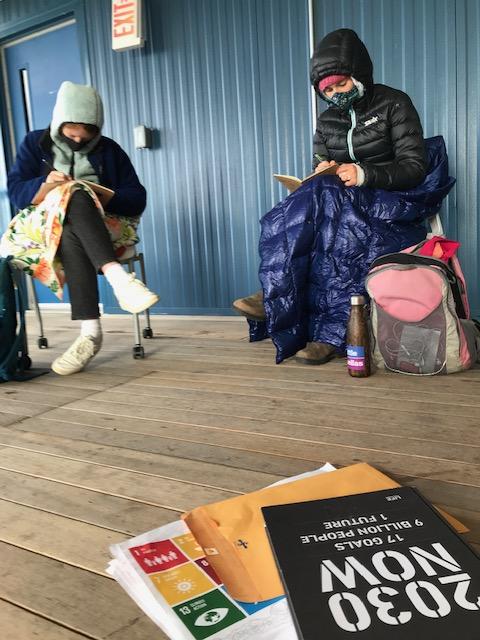
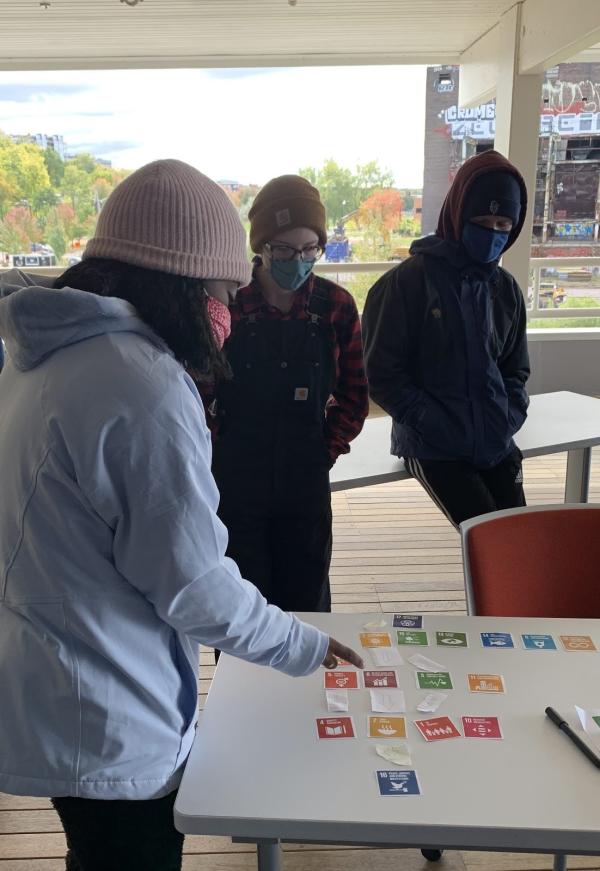
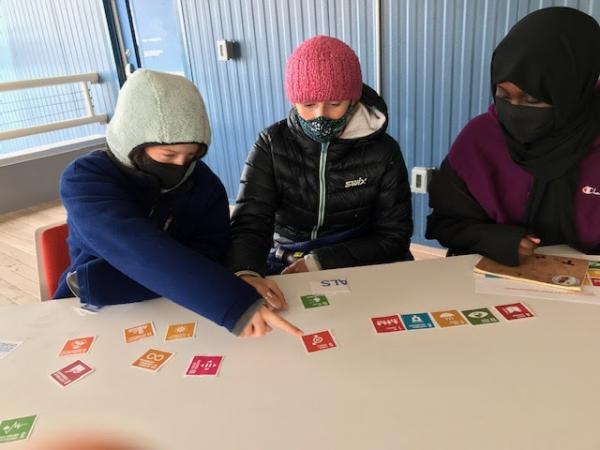
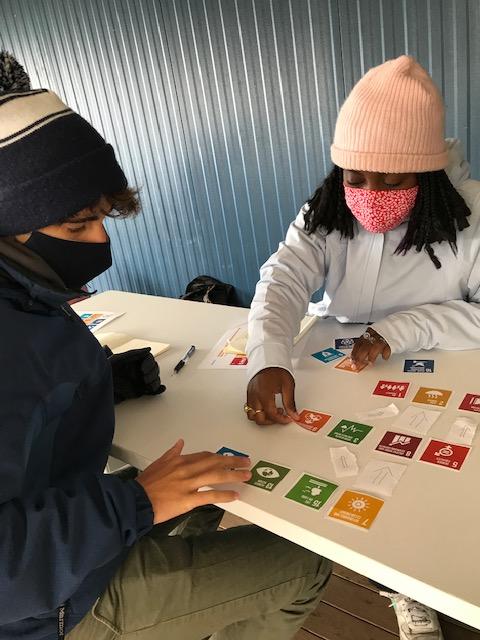
![Safiya participates in a planning session for the U.N. University sponsored gathering of the Regional Centers for Expertise [RCEs] in Sustainability Education â which brings together sustainability educators and policymakers from across the Americas.](/sites/default/files/styles/full_width_narrow/public/img_5227.jpg?itok=NLJ-Xo6q)
